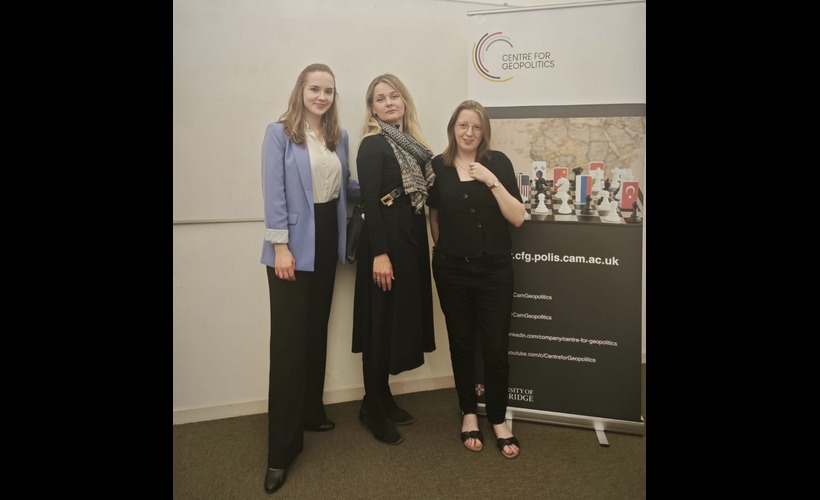By Elvira Tamus, Research Assistant
The Centre’s second Baltic Summer School took place in Gdańsk, Poland, between 11-15 July 2023. The event, titled ‘Border Infrastructures Changes and Socio-Cultural Impact (Past and Present)’, was co-organised with the International Border Studies Center (IBSC), University of Gdańsk, and the Interdisciplinary Centre for Baltic Sea Region Research (IFZO), University of Greifswald.
We built upon the experience we gained at our first summer school held at Vilnius University in 2022. In Gdańsk, the Centre for Geopolitics was represented by Rt Hon Charles Clarke, Dr Donatas Kupciunas, Sarah Squire (former British ambassador to Estonia), and Elvira Tamus, Research Assistant. Our partners, Professor Anna Mazurkiewicz (Gdańsk) and Dr Alexander Drost (Greifswald) created a fascinating programme for us. The 18 Cambridge participants were BA, MA, and PhD students from various disciplines – History; Politics and International Studies; Modern and Medieval Languages (Russian, German, French); English; Slavonic Studies; Economics; Anglo-Saxon, Norse, and Celtic Studies; and Human, Social, and Political Sciences.
Our aim was to raise awareness of this important but often neglected part of Europe among Cambridge students who have not had the chance to study about or visit the area, and also to improve the knowledge of those who work on topics related to Poland or the Baltic Sea region. The school started off with visits to the Malbork Castle, where we learned about the history of the Teutonic Order, to a traditional Mennonite house for lunch, to a Greek Catholic church, and to Krynica for a walk on the beach close to the border with Kaliningrad.
On the second day, we investigated Hanseatic Gdańsk at the Memling Research Centre with Professor Beata Możejko (Gdańsk), had a great pierogi lunch, and listened to the lectures of Dr Jan Daniluk (Gdańsk) on the ‘Borders of the Free City of Danzig (1920-39): problems, meanings, memories’ and Dr Magdalena Sacha (Gdańsk) on ‘The memory of borders in Pomerania, 1920-1939 (Polish-German-Danzig)’.
On the third day, we discussed ‘Border narratives and media imagining’ with Dr Grzegorz Welizarowicz (Gdańsk) and Dr Ross Aldridge (Gdańsk), before exploring the World War II Museum with Dr Daniluk and Professor Rainer Liedtke (University of Regensburg).
On day four, Professor Miłosława Borzyszkowska (Gdańsk) talked to us about ‘Günter Grass’ Gdańsk as borderland. A literary mapping of the city’, and then we visited the European Solidarity Center (ESC) to examine ‘Global Transitions 1989-1991 in a historical perspective. A view from the Southern Baltic’. We heard Dr Jacek Kołtan (ESC) on ‘Legacies of Solidarity’ and Dr Kęstutis Kilinskas (Vilnius) on ‘Lithuanian borders under threat’. We finished the summer school with Dr Marta Grzechnik’s (Gdańsk) ‘Gdynia – narrated walk in “The City of Sea and Dreams”’, and a concluding debate on ‘What is the Baltic Sea Region?’ in the Emigration Museum with Prof. Kazimierz Musiał (Gdańsk) and Dr Drost. Here, students shared their reflections and illustrated their thoughts with photos they took during the week. The participants of the Gdańsk summer school significantly enhanced their understanding of Polish, Baltic, and East Central European history, geopolitics, economics, and culture.
Our students from Cambridge very much enjoyed the diverse programme and we hope to organise our third summer school in 2024 at another institution in the region. In conclusion, our summer school was a highly successful collaboration that has further strengthened relations between the Universities of Cambridge and Gdańsk as well as between the UK and the Baltic Sea region.







